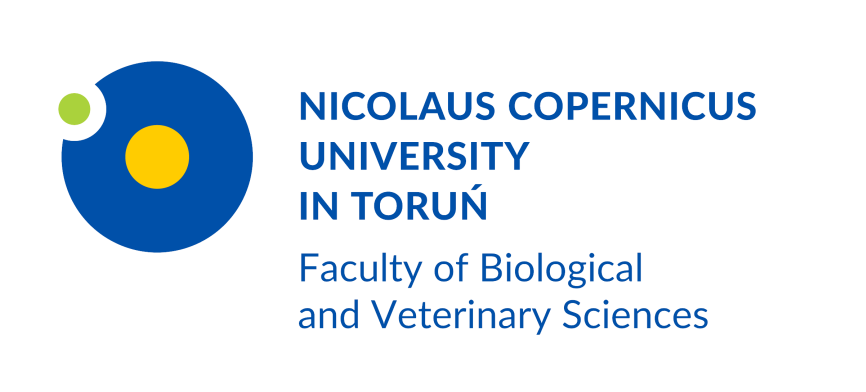Department of Invertebrate Zoology and Parasitology
Invertebrates are the most numerous group of Eukaryota, including more than 90% of all contemporary animal species.
They include animal-like protists and animals without the internal axial skeleton. Such a broad criterion makes this group very diverse and exhibits a full range of possible adaptations to the environment. Moreover, they reflect consecutive stages of the development of life on Earth.
Due to their diversity and abundance, invertebrates constitute one of the most important ecosystem components. They can be found at almost all positions of food webs and in all areas of human life and economy. Pollinators determine crops in agriculture, pests damage crops, products and technical appliances, parasites constitute an important medical and veterinary problem, hemophages participate in pathogen transmission, seafood organisms, particularly molluscs and crustaceans are used in the kitchen, producers of chitin and nacre are a valuable source of these substances and many species are important environmental indicators. This picture shows the tremendous role of these organisms on Earth and the great importance of studying their biology.
In the Department of Invertebrate Zoology and Parasitology, we work on numerous aspects of invertebrate biology, including embryology and teratology (Teresa Napiórkowska, Julita Templin), parasitology and host-parasite interactions (Elżbieta Żbikowska, Anna Cichy, Anna Marszewska), adaptations of organisms to the land-water interface (Małgorzata Poznańska-Kakareko, Jarosław Kobak) and biological invasions in aquatic environments (Jarosław Kobak, Anna Dzierżyńska-Białończyk).
We specialize in such invertebrate groups as mollusks (Elżbieta Żbikowska, Anna Cichy, Anna Marszewska, Anna Dzierżyńska-Białończyk, Małgorzata Poznańska-Kakareko, Jarosław Kobak), spiders (Teresa Napiórkowska, Julita Templin), crustaceans (Jarosław Kobak, Małgorzata Poznańska-Kakareko), oligochaetes and aquatic insects (Małgorzata Poznańska-Kakareko) and digenetic trematodes (Elżbieta Żbikowska, Anna Cichy, Anna Marszewska).
We invite interested readers to look at our webpage. The page Research interests contain more details on the activity of our research teams and their current research topics.
The history of the Department of Invertebrate Zoology
The history of the Department of Invertebrate Zoology at the Nicolaus Copernicus University dates back to the beginnings of the University in Toruń. The University was founded just after the World War 2 in 1945. Its staff was based on scientists coming from the Sfefan Batory University in Vilnius (present Lithuania). The Chair of Systematic Zoology, precursor of the Department belonged to the Faculty of Mathematics and Natural Sciences, which was the two first faculties at the new university. Professor Jan Prüffer, the former professor of the Sfefan Batory University in Vilnius and the first head of the Chair of Systematic Zoology was the founder of this Faculty and its first dean in the years of 1945-1947.
On 31 January 1950 the Council of the Faculty of Mathematics and Natural Sciences established the Group of Zoology Chairs managed by prof. Jan Prüffer.
On 01 September 1951 r. the university structure was re-organised. In result, the Faculty of Mathematics and Natural Sciences was split into the Faculty of Mathematics, Faculty of Physics, Faculty of Chemistry and Faculty of Biology and Earth Sciences. The latter was organised by prof. Henryk Szarski. On 02 February 1952 the Polish Ministry of Higher Education approved the new structure.
In 1960 the chair of the newly founded Department of Invertebrate Zoology was taken by prof. Izabella Mikulska (1960 – 1977). The subsequent heads of the Department were doc. dr hab. Sabina Wąsowska (1978 – 1984), prof. dr hab. Arnold Drozdowski (1985 – 1995) and prof. dr hab. Lech Jacuński (1995 – 2010).


Since 2010, the head of the Department is prof. dr hab. Elżbieta Żbikowska. In 2019 the Department has changd his name tothe Department of Invertebrate Zoology and Parasitology and includes 6 academic staff members (prof. dr hab. Elżbieta Żbikowska; dr hab. Jarosław Kobak, prof. UMK; dr hab. Teresa Napiórkowska, prof. UMK; dr hab.Małgorzata Poznańska, prof. UMK; dr Anna Cichy and mgr Anna Marszewska), 1 scientific and technical specialist (dr Julita Templin), and 2 PhD students (mgr Anna Dzierżyńska-Białończyk; mgr Anna Marszewska).

 ul. Lwowska 1, 87-100 Toruń
ul. Lwowska 1, 87-100 Toruń


